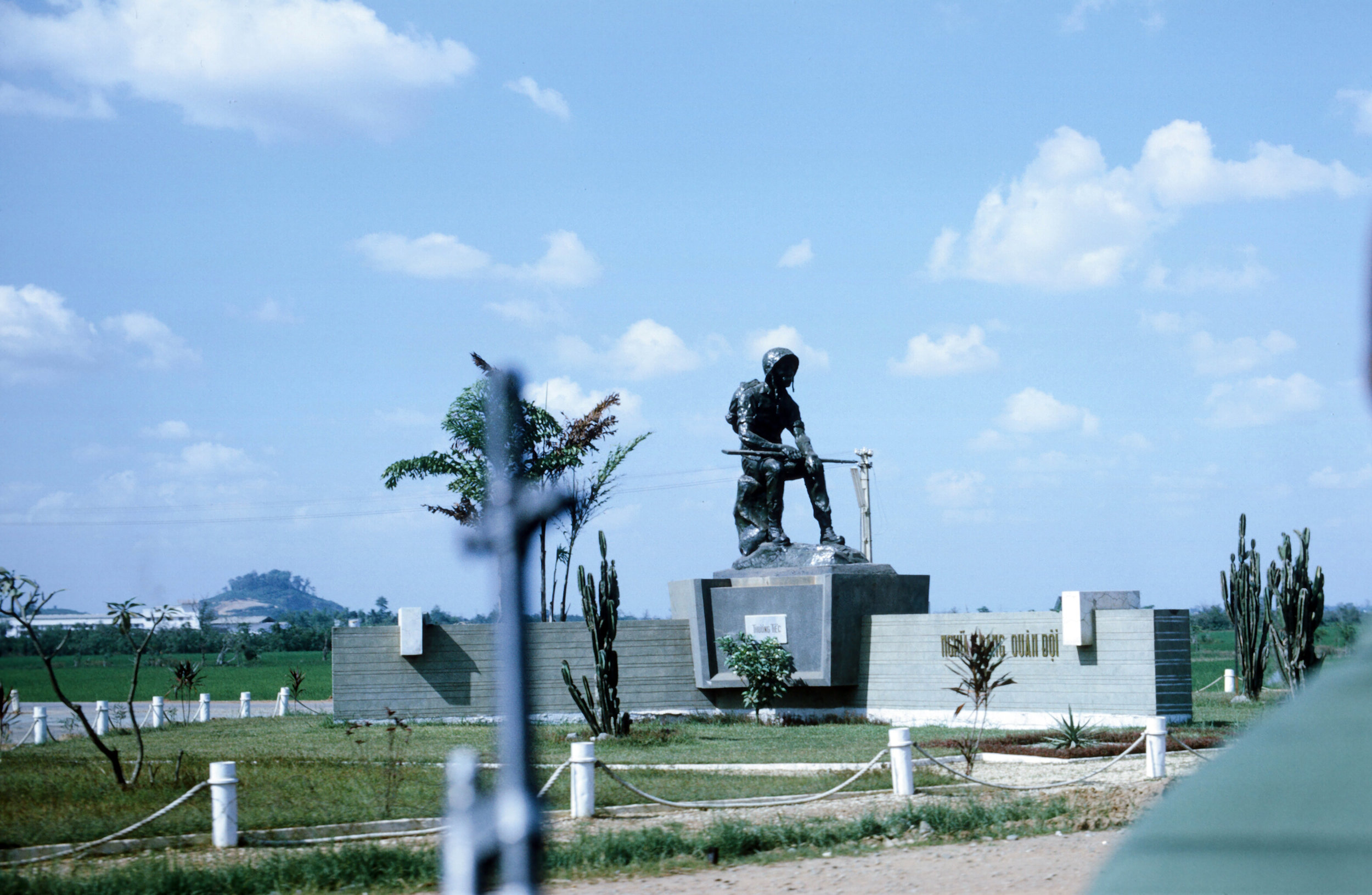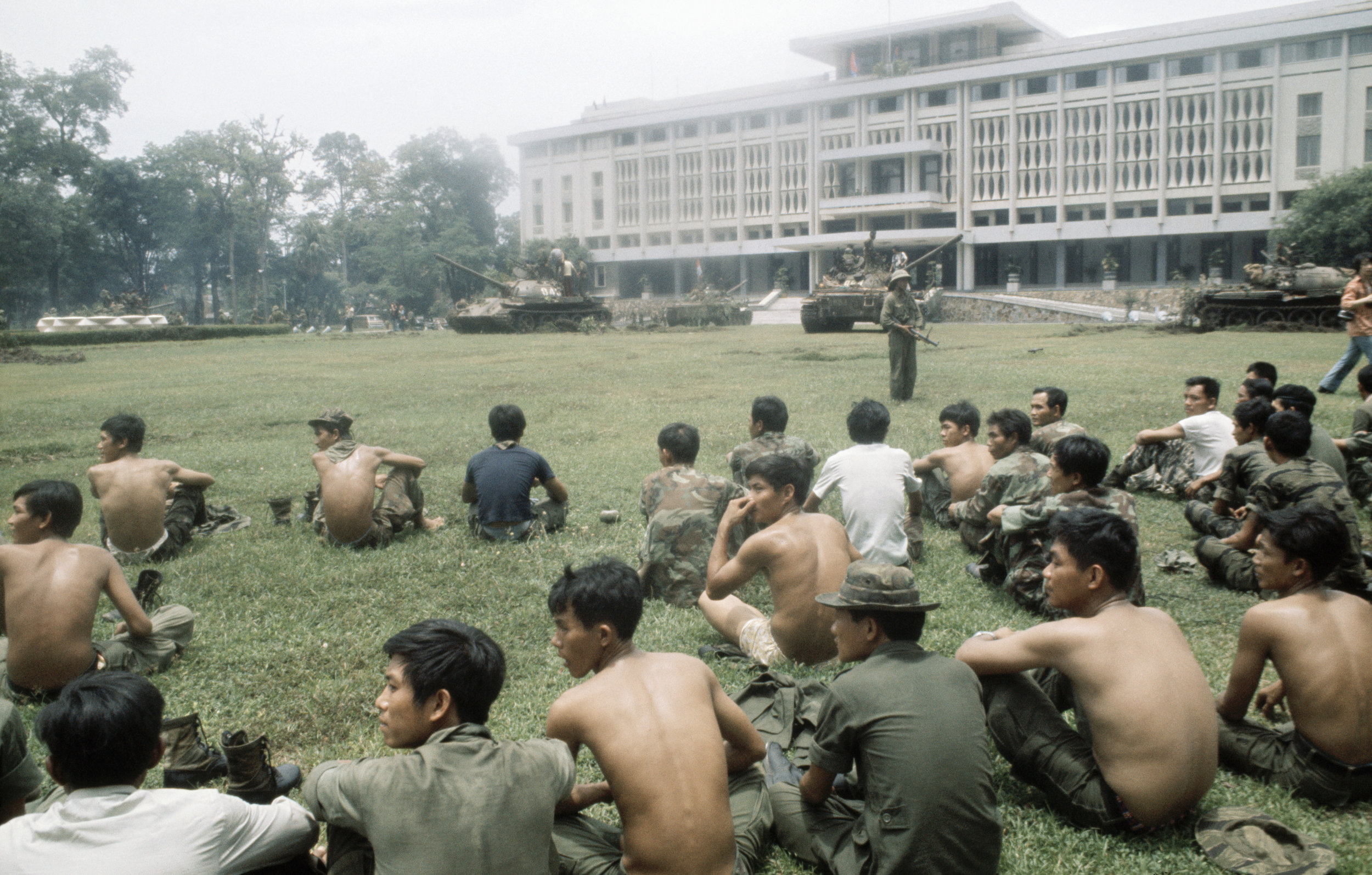In Good Faith

The 1973 Paris Peace Accords were supposed to halt the war in Vietnam and provide a template for disarmament and peace in Indochina. However, it also served as a mechanism by which the United States could wash its hands of Vietnam and Southeast Asia, saying that “peace with honor” had been achieved.
The South Vietnamese acceptance of the Accords was predicted on the assurances and heavy political pressure of the Nixon administration that the United States would be ready to respond to any strong violations. Thieu had not been made aware of the secret negotiations between the United States and the North Vietnamese, the Accords explicitly treated the Provisional Government of Vietnam (effectively the shadow government of the National Liberation Front) as an equal to both Vietnamese states (which was an idea contrary to South Vietnamese policy), and finally the Accords called for a ceasefire in place, which allowed North Vietnamese military forces to remain in South Vietnam, occupying large swaths of territory (further complicating the already tenuous South Vietnamese defensive positions).
In order to assuage Thieu, who outright had refused to sign the Accords without major changes (the United States and North Vietnam had already largely come to an agreement), Nixon ordered the bolstering of the ARVN by sending large quantities of U.S. military material and equipment from May to December 1972 under Operations Enhance and Enhance Plus and ordered the Operation Linebacker II bombings in December 1972.
Additionally, Nixon wrote a series of letters to Thieu to reassure him of the U.S. commitment to retaliatory action;
Nov. 14, 1972:
“But far more important than what we say in the agreement of this issue”—the presence of the North Vietnamese troops— “Is what we do in the event the enemy renews its aggression,” Mr. Nixon wrote. “You have my absolute assurance that if Hanoi fails to abide by the terms of this agreement it is my intention to take swift and severe retaliatory action.”
Jan. 5, 1973:
“Should you decide, as I trust you will, to go with us, you have my assurance of continued assistance in the post‐settlement period and that we will respond with full force should the settlement be violated by North Vietnam.”
("Full force" was interpreted to mean both strategic and tactical air strikes as conducted in 1972 in response to the Easter Offensive.)
Ultimately, however, he made an ultimatum to Thieu, giving him essentially 24 hours to sign the agreement, which he did. As late as March 1973, Nixon also made public statements decrying North Vietnamese aggression, vowing to respond to increased North Vietnamese violations.
The "War of the Flags" in 1973 was largely inconclusive, and in the rest of the year, the United States was distracted by the global oil crisis and the Israeli Yom Kippur War. By January 1974, Thieu had declared the Accords were no longer in effect, which had effectively been true since the Accords were signed.
After Ford became President in 1974, Congress cut financial aid to South Vietnam from $1 billion a year to $700 million. It also voted to further restrict funding, to be phased through 1975, culminating in a total cutoff in 1976. The moral of the South Vietnamese, who on paper enjoyed numerical superiority, dropped precariously. The oil crisis meant there was little fuel for helicopters, trucks, and armored vehicles—the ARVN, having grown accustomed to the U.S. style of mechanized and helicopter assault warfare, was forced to again rely on trucks and walking. The cuts in military aid meant that the ARVN could not afford to replace ammunition shot out of small arms, grenades thrown, artillery shells fired, and towards the end of the war, even bandages used. Spare parts were scarce. By the end of 1974, with the ARVN supply situation clear to all, the North Vietnamese decided for a final offensive, aimed at capturing Saigon by Ho Chi Minh's birthday and ending the war by 1976.
On January 28th, 1975, Ford asked Congress for an additional $522 million in military aid for South Vietnam and Cambodia. This was denied. In April 1975, Ford asked Congress for $722 million in emergency military aid as the North Vietnamese knocked on Saigon's door. Congress denied it. The only money both sides in Congress had any appetite in appropriating was money for evacuating Americans.
The 1975 Spring Offensive was a conventional one (the National Liberation Front had all but been spent in terms of manpower, though they were able to field seven infantry divisions, one corps headquarters, and five battalions of artillery for the final offensive). 270,000 North Vietnamese troops were already in South Vietnam at the signing of the Accords, and by the fall of Saigon, nearly every PAVN ground combat unit was deployed to South Vietnam. While the North Vietnamese had their own supply issues going into the offensive, by the fall of Ban Me Thuot, and the disastrous rout from the Central Highlands, it became clear to even the most casual observers, that South Vietnam would not be able to hold the majority of its remaining territory, if Saigon at all. The multiple denials of emergency military aid to South Vietnam had the effect of further demoralizing the South Vietnamese and eroding their willingness to fight.
However, the South Vietnamese largely believed, right until the very end, that if the Americans had okayed emergency aid or even committed to air strikes, that Saigon or at least MR IV in the delta region could have been saved. This is reflected in anecdotal quotes and documents involving a proposed breakout from Saigon and idea of a redoubt around Can Tho.
As a result, Congress, already weary of the war, especially after U.S. combat withdrawal, seeing that the writing was on the wall for South Vietnam, refused to appropriate money that they thought would be "wasted." Ford had his hands tied by the War Powers Act, which only permitted non-Congressionally approved action involving "a national emergency created by attack upon the United States, its territories or possessions, or its armed forces." The Act and Congress's unwillingness to appropriate any money, made intervention an impossibility.




